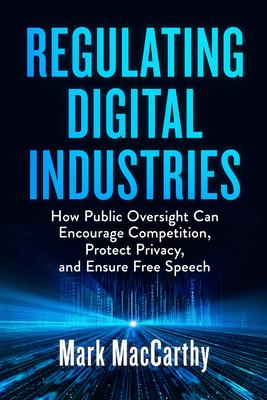Regulating Digital Industries is the first book to address the tech backlash within a coherent policy framework. It treats competition, privacy and free speech as objectives that must be pursued in a coordinated fashion by a dedicated industry regulator. It contains detailed discussions of current policy controversies involving social media companies, search engines, electronic commerce platforms and mobile apps. It argues for new laws and regulations to promote competition, privacy and free speech in tech and outlines the structure and powers of a regulatory agency able to develop, implement and enforce digital rules for the twenty-first century.
Deeply informed by the history of regulation and antitrust in the United States, it brings to bear insights from the breakup of AT&T and the Microsoft case and from broadcasting and financial services regulation to enrich the discussion of remedies to the failure of tech competition, the massive invasion of privacy by digital firms and the information disorder perpetuated by social media platforms. It offers a comprehensive summary of regulatory reform efforts in the United States and abroad and shows how accomplishing the goals of these reform efforts requires the establishment of a single digital agency with jurisdiction to reconcile and balance the complementary and conflicting goals of promoting competition, protecting privacy, and preserving free speech in digital industries.
It discusses in detail how a digital regulatory agency would be structured and the powers it would need to have. It confronts head on some of the challenges in establishing a strong digital regulator including the First Amendment roadblock that limits government authority over digital speech and the judicial opposition to the expansion of the administrative state. It is essential reading for policymakers, public interest advocates, industry representatives, academic researchers and the general public interested in a coherent policy approach to today’s tech industry discontents.









